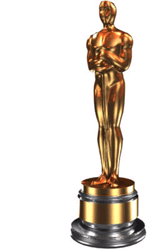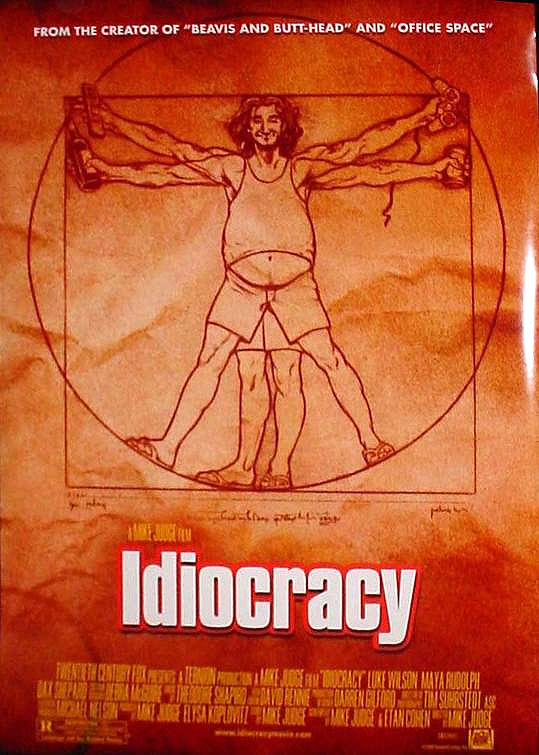This one's been out for a while but I figured I'd post the review anyway...

There’s a scene towards the end of the new James Bond film Casino Royale in which Bond, looking anxious and dreary-eyed, orders a martini. Duly, the bartender asks, “Shaken or stirred?” Bond coarsely replies, “I don’t give a damn!”
The scene embodies the direction the classic franchise appears to be taking after forty years of exciting audiences across the world with stories of espionage and intrigue. Bond is back, but he’s brittle, battle torn, and emotionally unstable.
He’s also blue eyed and blond – not exactly the traditional Bond look. Many questioned the decision to cast Daniel Craig as the sophisticated suave super-spy, but fans of the series can rest easy – Craig is the toughest, most intense Bond to date and the film, which is an origin story of sorts swiped from both the 1967 spoof and 1953 novel of the same name, is smart, slick, and action packed. But is the franchise really starting over, or is it simply offering more of the same?

Casino Royale starts things off at the beginning, with Bond committing his first two kills and earning OO agent status. The script, which was penned by previous Bond scribes Neal Purvis and Robert Wade along with Academy Award winning Crash screenwriter Paul Haggis, is intermittently brilliant, with a relatively low-tech plot involving terrorists and a card game that doesn’t escape into the absurdity of 1999’s The World is Not Enough or the sci-fi schematics of 2002’s Die Another Day. Director Martin Campbell delivers the good at a brisk, calculated pace and the result is a focused, easy-to-swallow story with a heightened sense of realism, plenty of tension and twists. It even leaves room for Bond to act!
And yet, even with all that emoting, one can’t help but feel like they’re watching just another Bond flick. The story follows the same narrative arch as any of the other films (it’s all just a platform for Bond to run from exotic locale #1 to exotic locale #2) and contains all the necessary elements (fast cars, faster women, and a creepy villain who weeps blood) without attempting to raise the bar in terms of spectacular stunts or singular storytelling. Rather, the subject of this film is Bond himself; his unwavering ego, the way he struggles with his work, and his state of mind. Bond is depicted, finally, as a vulnerable character, both mentally and physically.
The origin angle, which acts to justify Bond’s new state of psychosis, is too fleeting – is this a psychological study, or an uneven attempt at adding depth to a character that’s been one dimensional for almost four decades? The film doesn’t flesh out Bond’s back-story much beyond what we already knew (minus an interesting explanation for his misogynistic tendencies towards women), and the whole soul-searching, self-preservation thing wouldn’t have worked if Daniel Craig weren’t so damn good.
The franchise has really found a winner in Craig, who brings the same effortless intensity from his breakout performance in 2004’s drug-fueled British ganger film Layer Cake to his portrayal of a cockier, more complicated Bond. With his baby blue eyes and Steve McQueen type looks – as well as his buff physique – Craig remains somewhat an odd choice but wears the Bond moniker surprisingly well. And, luckily for him, the script has more juicy acting bits than all the Pierce Brosnan-era Bond films combined.
At over two hours and twenty minutes long, Casino Royale does drag on a bit – too much poker, perhaps – but it also features some heart-stopping action including an energetic, off-the-cuff introduction involving jumps that rival what Spiderman can do in terms of distance. In fact, many elements of the film seem to have taken a cue from the modern superhero movie: the internally torn protagonist, the flawed and vulnerable villain, the super-psychological storytelling. Even the swooping camera that follows Bond around during the action scenes seems to be taken from a page right out of the Spiderman textbook. But for a franchise that has long suffered from flaccid dialogue and frivolous storytelling, these somewhat timeworn techniques for revitalizing a well-known character work, at least for now. Whether we’re actually seeing a newer, better Bond or merely a franchise riding the high of replacing its lead actor is hard to say; we’ll have to wait for Bond #22 to find that out. But if Casino Royale is any indication of where things are heading, it should be a fun ride.
An MGM release 2006
Directed by Martin Campbell
Writing Credits:
Neal Purvis (screenplay)
Robert Wade (screenplay)
Paul Haggis (screenplay)
Ian Fleming (novel)


























 I saw this film right outside of Asbury Park, New Jersey. The theater was absolutely filled with black people, and it was great. It was like going to church in Alabama; everyone was hootin' and hollerin' and cheerin' along, singing the songs with the film. For all the movie's faults, this seemed to make it a bit more palatable. I can't say I reccomend it - there are a million better musicals out there, with better songs and better performances. But if you absolutely love Broadway and can't make the trek out to NYC, maybe this film is for you. It's got lots of bright lights and sequin dresses, and it certainly captures the shallowness of 42nd Street, but it lacks the heart and soul of the music it supposedly represents. Let's just thank god it wasn't a biopic.
I saw this film right outside of Asbury Park, New Jersey. The theater was absolutely filled with black people, and it was great. It was like going to church in Alabama; everyone was hootin' and hollerin' and cheerin' along, singing the songs with the film. For all the movie's faults, this seemed to make it a bit more palatable. I can't say I reccomend it - there are a million better musicals out there, with better songs and better performances. But if you absolutely love Broadway and can't make the trek out to NYC, maybe this film is for you. It's got lots of bright lights and sequin dresses, and it certainly captures the shallowness of 42nd Street, but it lacks the heart and soul of the music it supposedly represents. Let's just thank god it wasn't a biopic. 